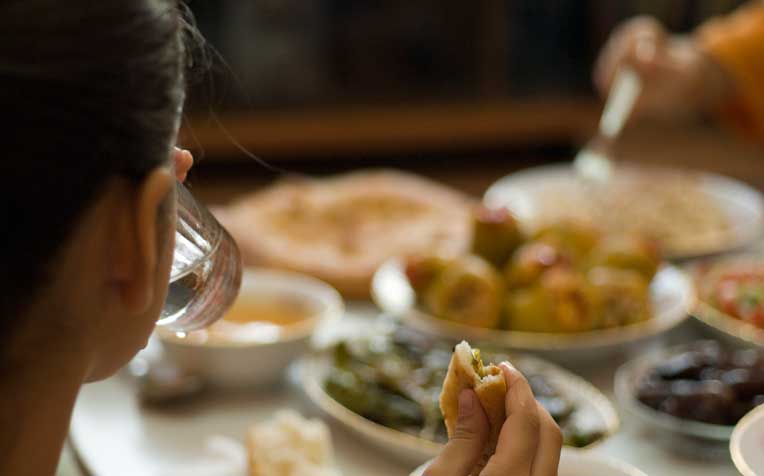
Fasting during Ramadan is not compulsory if you have chronic diseases, or where fasting endangers or is harmful to your life.
Fasting during the month of Ramadan is one of the pillars of Islam and a duty for every Muslim.
In this article,
Dr Sueziani Zainudin, Senior Consultant from the Endocrinology Service at Sengkang General Hospital (SKH), and
Dr Daphne Gardner, Senior Consultant, from the
Department of Endocrinology at
Singapore General Hospital (SGH), both members of the
SingHealth group, share guidelines for people with
diabetes (also known as diabetics) on how to manage Ramadan fasting.
Watch the video!
Before starting to fast
1. Know that there is no compulsion to fast when you’re not healthy
Surah Al Baqarah Verse 184 - 185 provides a clear guide that fasting during Ramadan is not compulsory if you have chronic diseases, or where fasting endangers or is harmful to your life (e.g. if you’re on insulin, have renal failure, or are pregnant).
You can make contributions to the poor or needy in lieu of fasting during Ramadan.
2. Make the decision to fast with the doctor treating your diabetes 2 months before Ramadan
It is important to discuss fasting with your doctor up to 2 months before Ramadan as you will need to know:
How to fast safely
Whether adjustments to your diabetes medications may need to be made beforehand.
Do not self-adjust or stop medications on your own.
3. Have a trial run of fasting before Ramadan
A "trial run" of fasting before Ramadan (i.e. Puasa Sunat) may be done to identify possible problems during fasting for Ramadan. Please discuss this with your doctor.
While performing the fast
4. Don’t skip Sahur (your pre-dawn meal)
You must not skip your
Sahur (pre-dawn) meal. Have a well-balanced meal in the morning and take an appropriate amount of insulin for that, taking into consideration that you will not be eating through the day until sunset. Should you miss your Sahur meal, you should not fast.
5. Choose foods with low glycaemic index (GI) to prevent your blood sugar from fluctuating too much.
For example, basmati rice has a lower GI than regular white rice.
6. Drink 8 glasses of sugar-free fluids
Try to drink adequate fluids (choose sugar-free fluids) during Sahur and Iftar (sunset-meal) to replenish fluid loss during the day. Aim for 8 glasses a day.
7. Monitor your blood glucose levels when you are fasting
Self-monitoring of blood glucose during fasting is allowed during Ramadan. In fact, it is necessary for a successful fast.
8. Check for high blood glucose, low blood glucose levels or severe dehydration
You must be able to recognise when you have high blood glucose levels, low blood glucose levels or severe dehydration.
9. Signs you should stop fasting
You MUST terminate your fast immediately if you encounter these problems. Skipped fasting days can be replaced in the future.
Blood glucose levels
Blood glucose < 4.0 mmol/L during fasting
Blood glucose > 16 mmol/lL
Signs of hypoglycaemia (low blood glucose)
Feelings of tremors
Sweating
Palpitations
Hunger
Dizziness
Confusion
Symptoms of severe dehydration
Dizziness (feeling faint)
Confusion
After breaking the fast
10. Break your fast promptly and eat in moderation
Breaking of fasting (berbuka) should not be delayed. When breaking fast, drink plenty of fluids and have a healthy meal. Try not to go overboard when you buka puasa!
Ref: O17
Check out other articles on Ramadan fasting:
Best Foods to Eat for Suhoor (pre-dawn meal)
Best Foods to Eat for Iftar (break fast)


















 Get it on Google Play
Get it on Google Play